Life can get messy and unpredictable sometimes, and some things are just out of our…
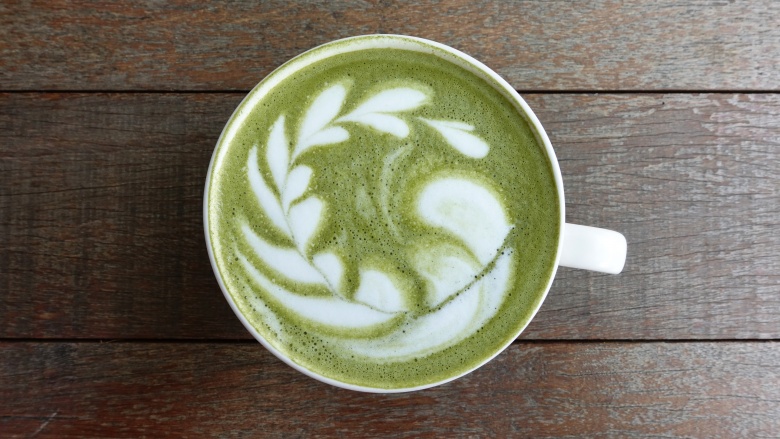
The Untold Truth Of Matcha Tea
Perhaps the most important thing to know about matcha tea is that it’s absolutely delicious.
There’s a lot more to the tasty green matcha tea beverage than its scrumptious, creamy flavor—and while most of it is good, not all of it is.
It has a slew of health benefits
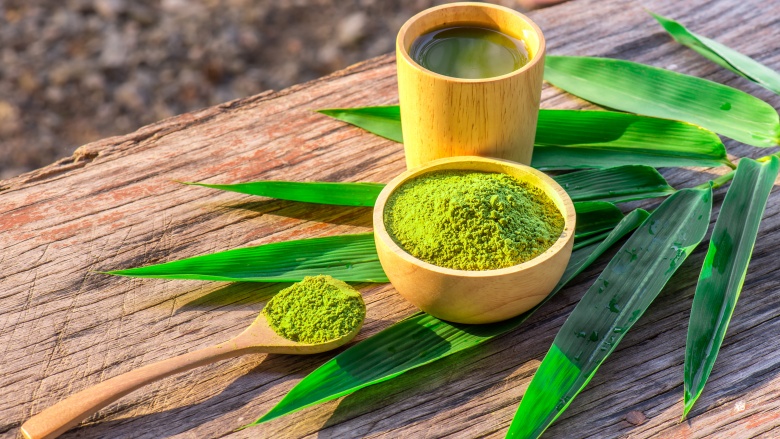
We’ll start with the good news: Matcha is loaded with antioxidants. The Wall Street Journal reports that matcha has 137 times the antioxidant epigallocatechin gallate (EGCG) than regular green tea does—and that’s huge. Why? EGCG boosts metabolism and may slow or cease the growth of cancer cells.
Matcha is also chock full of polyphenols, which may also prevent cancer and heart disease and help to regulate blood sugar. Since you’re consuming actual leaves, matcha powder also contains a bit of fiber, which can aid digestion. Additionally, because matcha is usually shade-grown, it contains more chlorophyll, which some sources claim can help “detoxify” your body and heal wounds faster.
It should taste a little grassy—and be a little pricy
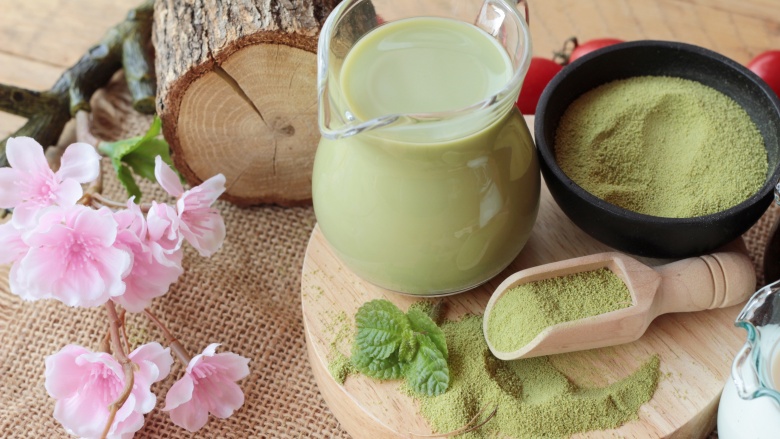
Be careful when purchasing matcha powders, as many will be combined with powdered milk and a lot of sugar, meaning it’s basically hot chocolate, but green. Check the ingredients: If the first ingredient listed is sugar, your matcha powder’s health benefits will be a lot lower because, well, sugar. Quality, purer matcha will likely be more expensive than the less healthy stuff, plus it will have a grassy, almost spinach-like taste. If you really want your matcha green tea to be creamy and sweet, you can do that yourself with healthier results!
You can use it in food, too
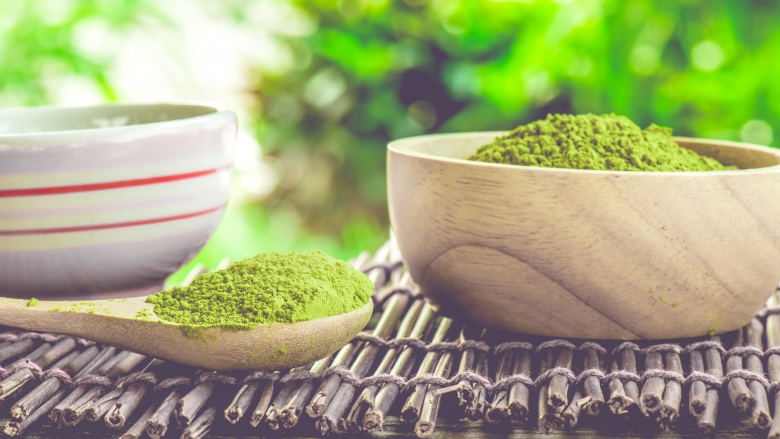
Drinking matcha tea is the most common way to consume matcha, but it’s not the only way. Since matcha leaves are powdered and consumed, instead of being steeped in water, it’s commonly used in solid foods, too. You can incorporate matcha powder into everything from matcha muffins for breakfast, to broccoli-matcha soup for dinner, to matcha cakes for dessert. You can even use it in guacamole and stir fry recipes! Also delicious? Satiating your sweet tooth with some matcha green tea ice cream.
It can help you lose weight
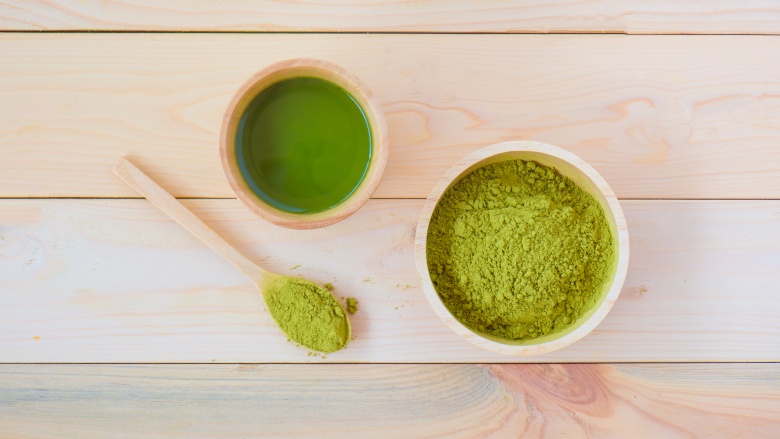
The American Journal Of Clinical Nutrition reports that green tea extract is loaded with catechins. These catechins contain thermogenic properties—meaning, they help your body torch calories. This study showed that consuming green tea can increase your rate of thermogenesis (calorie burning) from 8 to 10 percent. Drinking matcha green tea doesn’t just improve your resting metabolic rate: a separate study showed that drinking matcha green tea immediately before a workout resulted in 25 percent more fat-burning during exercise.
It may contain lead
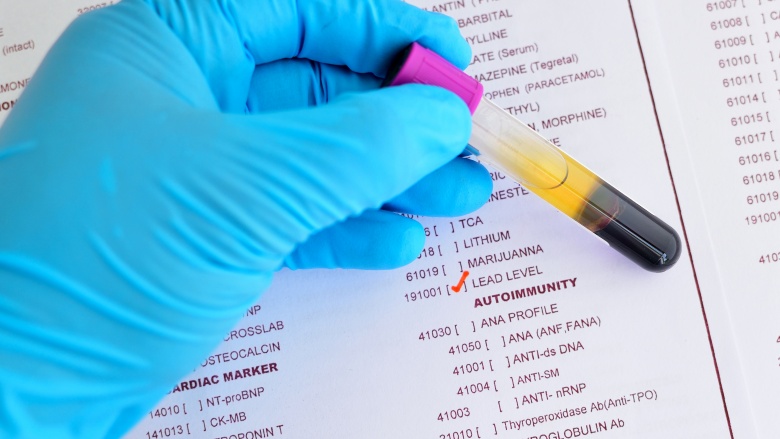 And now for a brief bad news break: green tea, especially green tea grown in China, has been shown to contain lead, which it absorbs from the environment. Because you’re consuming tea leaves when you drink matcha green tea, instead of steeping the tea and tossing the leaves, matcha tea contains more lead. The New York Times reports that matcha green tea is estimated to contain nearly 30 times more lead than regular green tea. It sounds scary, but it’s not as horrifying as it seems: You don’t have to avoid matcha green tea completely! Just limit yourself to one cup per day, and avoid giving matcha to children.
And now for a brief bad news break: green tea, especially green tea grown in China, has been shown to contain lead, which it absorbs from the environment. Because you’re consuming tea leaves when you drink matcha green tea, instead of steeping the tea and tossing the leaves, matcha tea contains more lead. The New York Times reports that matcha green tea is estimated to contain nearly 30 times more lead than regular green tea. It sounds scary, but it’s not as horrifying as it seems: You don’t have to avoid matcha green tea completely! Just limit yourself to one cup per day, and avoid giving matcha to children.
It can alleviate stress

Now that you’re terrified of matcha green tea’s lead content, enjoy a cup of happy to calm yourself down. Matcha contains an amino compound called L-theanine, which studies have shown creates a calming, relaxing effect. However, L-theanine doesn’t just make you chill out. It also aids in the creation and release of gamma amino butyric acid (GABA). GABA stimulates the release of hormones dopamine and serotonin, which make you happy. In short, drinking matcha tea may make you a little more blissful on a bad day.
It’s energizing, and can make you a better worker
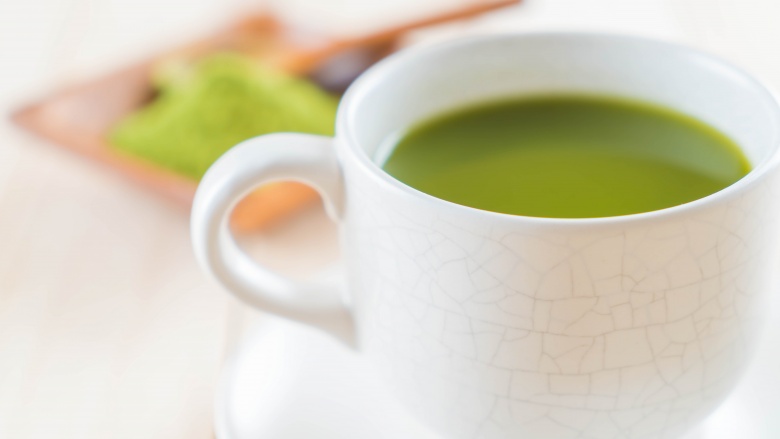
Matcha tea has three times more caffeine than regular green tea, amounting to roughly the equivalent of a strong cup of coffee.
However, it won’t give you the java jitters, because of the L-theanine content. It’s known to instead create a sense of “alert calm.” Plus, Matcha’s unique combination of L-theanine and caffeine won’t just put some pep in your step—it may actually make you perform better at work and school. Studies show that consuming matcha tea’s special mix of brain boosters improves the ability to multitask, increases speed of perception, reduces task-induced fatigue (so you won’t get exhausted from staring at your Excel spreadsheets all afternoon), improves your memory (no more forgetting your keys!) and can improve your concentration (so you don’t zone out during a staff meeting again).
It’s anti-aging
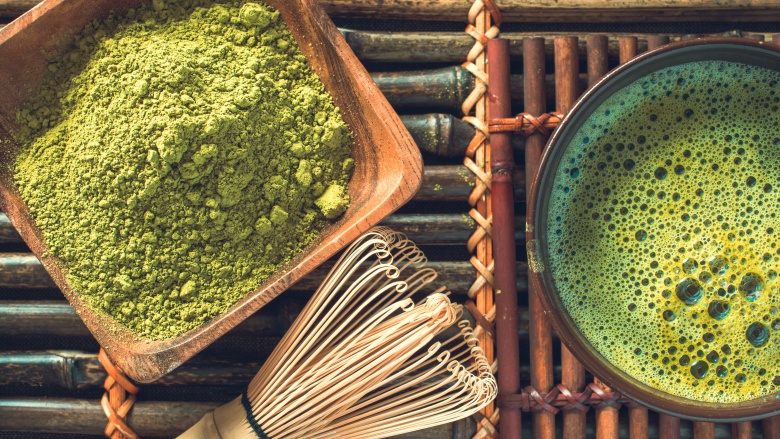
Some of the oldest people on the planet reside in Okinawa, Japan. Many of them credit their longevity with their consumption of matcha tea. Matcha’s antioxidant content (it has 60 times the antioxidants of spinach!) may help fight the aging process from the inside-out, leaving you with glowing, crease-free skin well into your twilight years…unless, of course, that lead count catches up to you.



